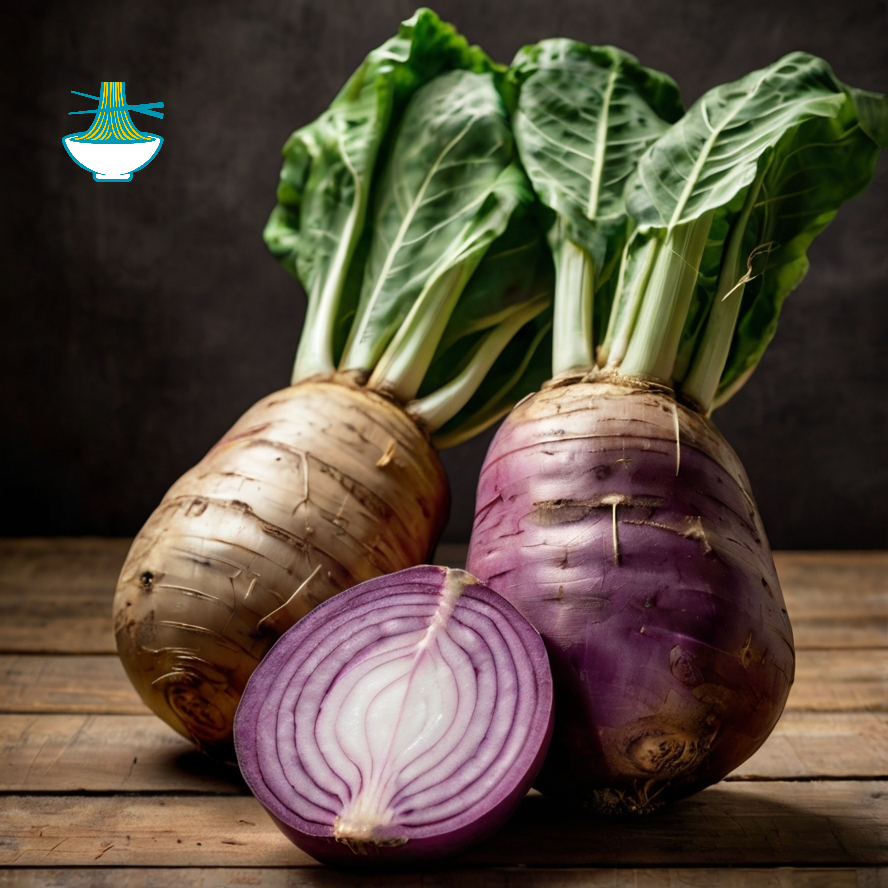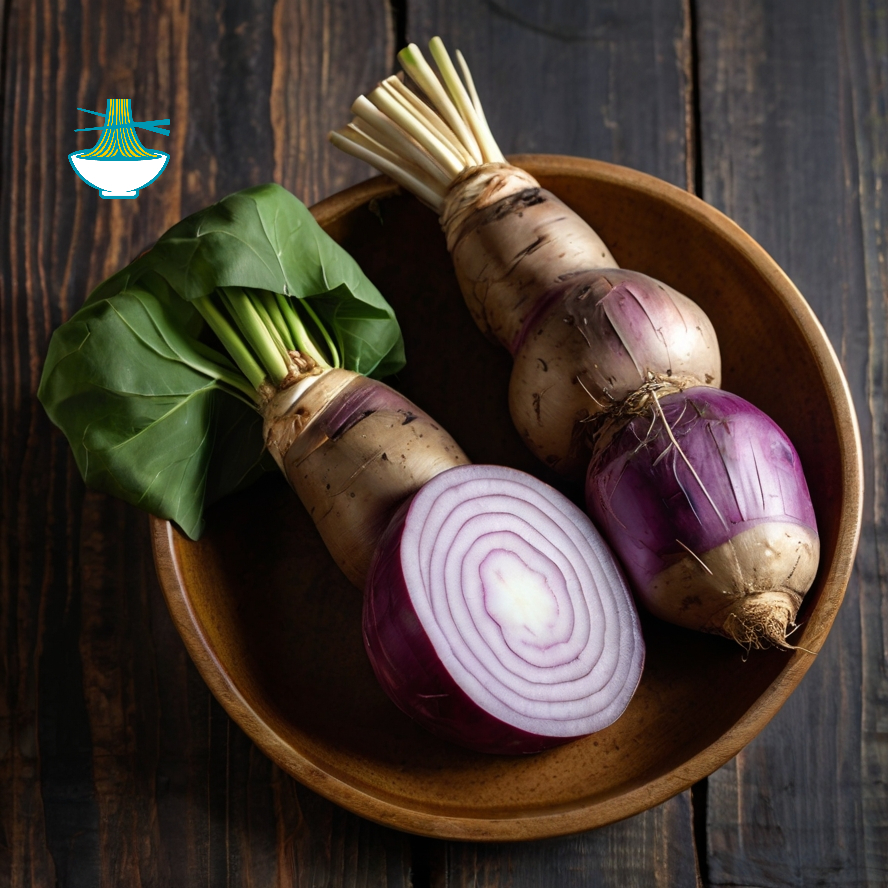Discover the versatile world of taro, a staple food cherished for its unique flavor and texture. Learn how to cook, mash, and incorporate taro into various delicious dishes. Explore its health benefits and nutritional value. Find recipes, cooking tips, and more on our website!
Recipe for Taro: A Versatile Staple Food
Ingredients:
- 2 pounds taro root
- 2 tablespoons olive oil or butter
- 1/2 cup coconut milk (optional for creamy texture)
- Salt and pepper to taste
- Fresh herbs (such as parsley or cilantro) for garnish
Instructions:
Prepare the Taro:
1- Rinse the taro roots thoroughly under cold water to remove any dirt.
2- Peel the taro roots carefully using a vegetable peeler or knife. Be cautious as the skin can be tough.
3- Cut the peeled taro into 1-inch cubes.
Cook the Taro:
1- Place the taro cubes in a large pot and cover them with water.
2- Bring the water to a boil over medium-high heat.
3- Reduce the heat to medium and let the taro simmer for about 15-20 minutes, or until the cubes are tender and easily pierced with a fork.
Mash the Taro:
1- Drain the cooked taro cubes in a colander.
2- Return the taro to the pot and add the olive oil or butter.
3- Mash the taro using a potato masher or fork until you achieve a smooth, creamy consistency. For an extra creamy texture, add the coconut milk and continue mashing.
4- Season with salt and pepper to taste.
Serve:
1- Transfer the mashed taro to a serving dish.
2- Garnish with fresh herbs like parsley or cilantro for added flavor and color.
3- Serve hot as a side dish, or use it as a base for various recipes.
Tips:
- Cooking Time: The cooking time may vary depending on the size and age of the taro roots. Adjust accordingly.
- Flavor Variations: Add garlic, onions, or spices like cumin and coriander to enhance the flavor.
- Storage: Store any leftover mashed taro in an airtight container in the refrigerator for up to 3 days. Reheat gently before serving.
Enjoy this versatile and nutritious taro dish, perfect as a side or incorporated into your favorite recipes!
Nutritional Values:
Here are the approximate nutritional values for the ingredients listed in the taro recipe. The values are based on common serving sizes and can vary slightly depending on the specific brands and types of ingredients used.
Nutritional Values per Serving
(Note: This recipe makes about 4 servings)
Taro Root (2 pounds / ~907 grams)
- Calories: 440
- Carbohydrates: 112 grams
- Protein: 2.5 grams
- Fat: 0.5 grams
- Fiber: 12 grams
- Vitamin C: 11 mg
- Vitamin E: 0.4 mg
- Potassium: 1340 mg
- Magnesium: 76 mg
- Calcium: 60 mg
- Iron: 2 mg
benefits:
- Rich in Fiber: Aids in digestion and helps maintain a healthy weight.
- Nutrient-Dense: Contains vitamins such as vitamin C, E, and B6, as well as minerals like potassium, magnesium, and manganese.
- Antioxidant Properties: Helps reduce inflammation and may lower the risk of chronic diseases.
- Blood Sugar Regulation: The fiber in taro helps slow down the absorption of sugars, aiding in better blood sugar control.
Olive Oil or Butter (2 tablespoons / 30 grams)
- Calories: 240 (for olive oil), 204 (for butter)
- Carbohydrates: 0 grams
- Protein: 0 grams
- Fat: 27 grams (for olive oil), 23 grams (for butter)
- Saturated Fat: 3.5 grams (for olive oil), 14 grams (for butter)
- Monounsaturated Fat: 19.5 grams (for olive oil)
- Polyunsaturated Fat: 3 grams (for olive oil)
- Vitamin E: 3.8 mg (for olive oil)
- Vitamin A: 684 IU (for butter)
benefits:
- Heart Health: High in monounsaturated fats, which are beneficial for heart health.
- Antioxidants: Contains vitamin E and polyphenols that have anti-inflammatory effects.
- Healthy Fats: Promotes satiety and helps in the absorption of fat-soluble vitamins.
Coconut Milk (1/2 cup / 120 ml, optional)
- Calories: 230
- Carbohydrates: 6 grams
- Protein: 2.3 grams
- Fat: 24 grams
- Saturated Fat: 21 grams
- Fiber: 2 grams
- Vitamin C: 2 mg
- Calcium: 16 mg
- Iron: 3.2 mg
- Potassium: 220 mg
benefits:
- Healthy Fats: Provides medium-chain triglycerides (MCTs) that are easier to digest and can be used quickly for energy.
- Electrolytes: Contains potassium, magnesium, and calcium, which are essential for maintaining proper hydration and muscle function.
- Lactose-Free: Suitable for those who are lactose intolerant.
Salt (1 teaspoon / 6 grams, to taste)
- Calories: 0
- Carbohydrates: 0 grams
- Protein: 0 grams
- Fat: 0 grams
- Sodium: 2325 mg
benefits:
- Electrolyte Balance: Helps maintain proper fluid balance in the body.
- Nerve and Muscle Function: Essential for proper nerve transmission and muscle contraction.
Pepper (1/2 teaspoon / 1 gram, to taste)
- Calories: 6
- Carbohydrates: 1.4 grams
- Protein: 0.2 grams
- Fat: 0.1 grams
- Fiber: 0.6 grams
- Vitamin C: 1 mg
- Calcium: 10 mg
- Iron: 0.2 mg
benefits:
- Anti-Inflammatory: Contains piperine, which has anti-inflammatory properties.
- Digestion Aid: Stimulates the stomach to produce more hydrochloric acid, aiding in digestion.
- Antioxidants: Rich in antioxidants that help fight free radicals and reduce oxidative stress.
Fresh Herbs (Parsley or Cilantro, 1 tablespoon / 4 grams)
- Calories: 1
- Carbohydrates: 0.2 grams
- Protein: 0.1 grams
- Fat: 0 grams
- Vitamin C: 4 mg
- Vitamin K: 62 mcg
- Calcium: 5 mg
- Iron: 0.1 mg
benefits:
Parsley:
- Rich in Vitamins: High in vitamin K, C, and A, which are essential for bone health and immune function.
- Antioxidant Properties: Contains flavonoids and volatile oils that have antioxidant and anti-inflammatory effects.
- Digestive Health: Can help in reducing bloating and promoting digestion.
Cilantro:
- Detoxification: Known for its ability to help detoxify heavy metals from the body.
- Antimicrobial: Contains antimicrobial compounds that can help protect against foodborne illness.
- Rich in Nutrients: High in vitamins A, C, and K, as well as minerals like potassium and manganese.
Total Nutritional Values (Approximate per Serving)
Assuming 4 servings without optional coconut milk:
- Calories: 188
- Carbohydrates: 28 grams
- Protein: 0.7 grams
- Fat: 7 grams
- Fiber: 3 grams
- Vitamin C: 5 mg
- Vitamin E: 1 mg
- Vitamin A: 171 IU
- Vitamin K: 15.5 mcg
- Potassium: 335 mg
- Magnesium: 19 mg
- Calcium: 20 mg
- Iron: 0.5 mg
- Sodium: 581 mg (with salt added)
These values can help you understand the nutritional profile of the taro dish. Adjusting the ingredients or serving sizes will affect these numbers accordingly.


Comments